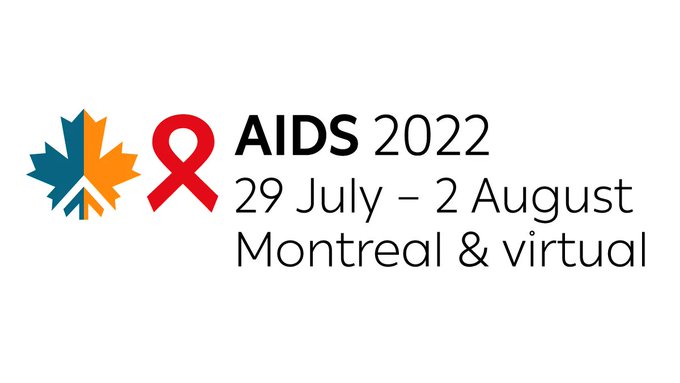|
Getting your Trinity Audio player ready...
|
Studies highlighted at the 24th International AIDS Conference provide insights on new and existing strategies to help end the HIV epidemic.
New studies presented at AIDS 2022, the 24th International AIDS Conference, hosted by IAS – the International AIDS Society – demonstrate promising advances in the global HIV response.
Speaking at a virtual press conference, authors shared:
- Successful results from a trial of the antibiotic doxycycline to prevent sexually transmitted infections (STIs)
- Reports of two adults in long-term remission off antiretroviral therapy (ART)
- A new method using microfluidics to define a biomarker of the HIV reservoir
- News of Botswana surpassing global 95-95-95 targets to nearly eradicate the epidemic in the country
- Promising results of a triple-therapy regimen for people living with both HIV and hepatitis B
“A cure remains the Holy Grail of HIV research,” Sharon Lewin, IAS President-Elect and Director of The Peter Doherty Institute for Infection and Immunity, said. “We have seen a handful of individual cure cases before, and the two presented today provide continued hope for people living with HIV and inspiration for the scientific community. What’s more, we are now seeing an advance in the great challenge of finding a biomarker for the HIV reservoir – a truly exciting development.”
Today’s scientific press conference highlighted six studies selected from thousands of abstracts being presented over the next week in Montreal and virtually.
Doxycycline significantly reduces risk of STIs after condomless sex by 65%
The DoxyPEP study found that taking 200mg of doxycycline within 72 hours of condomless sex significantly reduces the risk of gonorrhoea, chlamydia and syphilis among men who have sex with men and trans women. Among those randomized to take doxycycline, 65% fewer were diagnosed with an STI each quarter than those not taking doxycycline.
Participants in the study were male sex at birth, living with HIV or taking HIV pre-exposure prophylaxis (PrEP) and had a history of an STI and condomless sex with a male partner within in the past year. They were randomized 2:1 to take open-label doxycycline after condomless sex versus continued standard of care without doxycycline.
Among the 327 participants taking PrEP, there was a 66% reduction in new STIs per quarter (doxycycline 10.7% versus control 31.9%, p<0.001). Of the 174 participants living with HIV, there was a 62% reduction per quarter with doxycycline (11.8% vs 30.5%, p<0.0001).
Participants reported taking doxycycline 87% of the time after condomless sex; 54% reported taking fewer than 10 doses per month, 30% took 10-20 doses per month, and 16% took more than 20 doses per month. No serious or > Grade 2 adverse events were attributed to doxycycline.
Analyses of the impact of intermittent doxycycline on antimicrobial resistance and the gut microbiome are ongoing.
The DoxyPEP study was stopped early in May 2022 when a planned interim analysis showed that those randomized to take doxycycline had substantially fewer STIs.
Co-principal investigator Annie Luetkemeyer, Professor of Medicine at Zuckerberg San Francisco General Hospital at University of California, San Francisco, noted that doxycycline taken after sex is a promising prevention strategy for populations disproportionately impacted by high rates of STIs.
“DoxyPEP represents an important advance in reducing STIs within two vulnerable populations – men who have sex with men and transgender women,” Lewin said. “I look forward to learning more about the implementation of this prevention measure and any long-term effects of using antibiotics for STI prevention.”
The trial was funded by the National Institute of Allergy and Infectious Diseases (NIAID), part of the National Institutes of Health, through grant R01AI143439. It was conducted at the HIV clinic at Zuckerberg San Francisco General Hospital and the San Francisco City Clinic, both part of the San Francisco Department of Public Health, and the Madison Clinic and the Sexual Health Clinic at Harborview Medical Center, both at the University of Washington.
Abstract and session: Doxycycline post-exposure prophylaxis for STI prevention among MSM and transgender women on HIV PrEP or living with HIV: high efficacy to reduce incident STI’s in a randomized trial, Co-Chairs Choice (13231, Track B)
Stem-cell transplant recipient becomes fourth known adult case of HIV cure
A 66-year-old Caucasian man who received a stem cell transplant is the fourth known person to go into HIV remission. Data presented today by Jana Dickter of City of Hope describes the case of the man, diagnosed with HIV in 1988, who received chemotherapy and an allogeneic hematopoietic stem cell transplant (aHCT) after developing acute myelogenous leukaemia in 2018. Previously, he had an undetectable HIV-1 viral load on ART for many years.
The transplant recipient continued ART for 25 months after aHCT and his ART levels remained undetectable 12 months post-analytic treatment interruption. As of 14 months after stopping treatment and 39 months post-transplantation, there is no evidence of HIV RNA rebound and no detectable HIV DNA.
Declining HIV-1 specific humoral and no detectable HIV-specific cellular immune response was observed. The man’s CD8-depleted peripheral blood mononuclear cells remained uninfected after an ex vivo challenge with HIV R5 strains. Immunological studies 37 months after the aHCT and 12 months post-analytic treatment interruption showed a robust response to cytomegalovirus stimulation and no response to HIV CD4 and CD8 T cells.
This case may open up the opportunity for older people living with HIV and blood cancer to receive a stem cell transplant and go into remission for both diseases.






